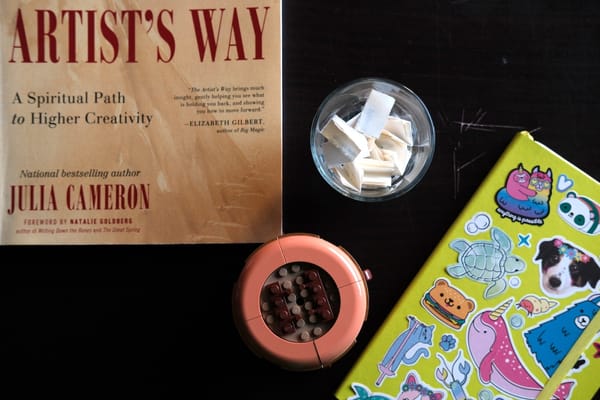Don't write for others
First, write for yourself. Then, write for others (if you want).

📝 Notes from Jenn:
🇬🇷 Hello from Athens, Greece! I’m out here for World of Coffee until Monday, and then I’m moving on to Porto, Portugal for a stopover. The bulk of this newsletter was put together in advance, thank goodness. If you’re also here, you can find me in booth #3-J1 (Acaia), or I’ll [probably] be the only East Asian person with purple hair. I guess that’s another update: I bleached (for the first time) and dyed my hair purple!
🛠 Current project: Holy cow, my produce in the self-watering planter are thriving (see plant update photo).
🔏 Last week, paid subscribers received details on how a divided and shifted work schedule has been impacting my mood and energy.
🍩 What I ate/drank/snacked on: This moussaka from a restaurant by where I’m staying. It has layers of eggplant and potato in it! In the background are fried feta & grilled octopus.


Don’t write for others
First, write for yourself. Then, write for others (if you want).
There’s a lot of writing advice out there—many of which are contradicting:
- Write in the morning; write before bedtime
- Write 1000 words every day, no excuses; don’t write until you feel like it (preserve your energy)
- Write short, digestible pieces; write longreads
- Wake up before everyone else and write; sacrifice your Friday nights to writing (this Tweet thread basically said to write instead of going to the bar)
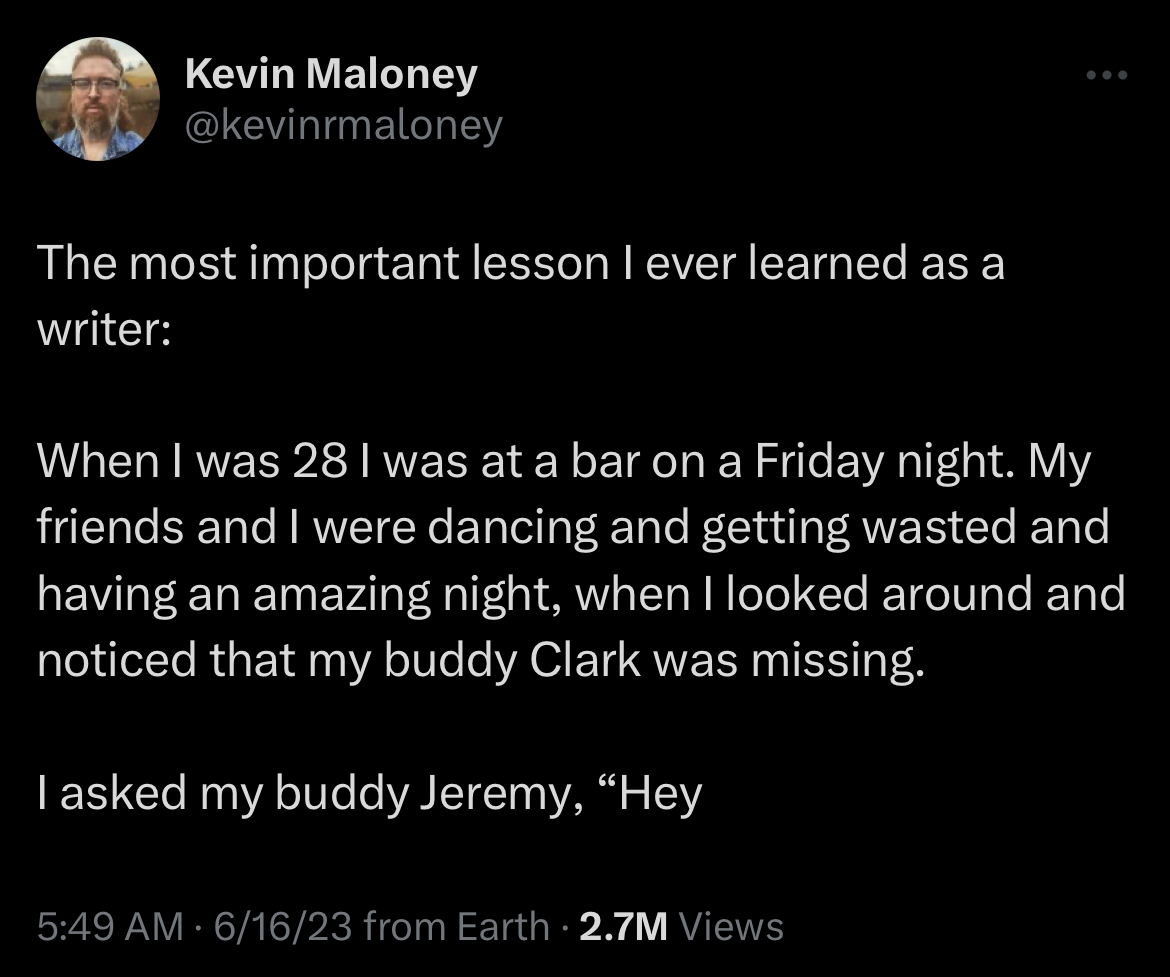
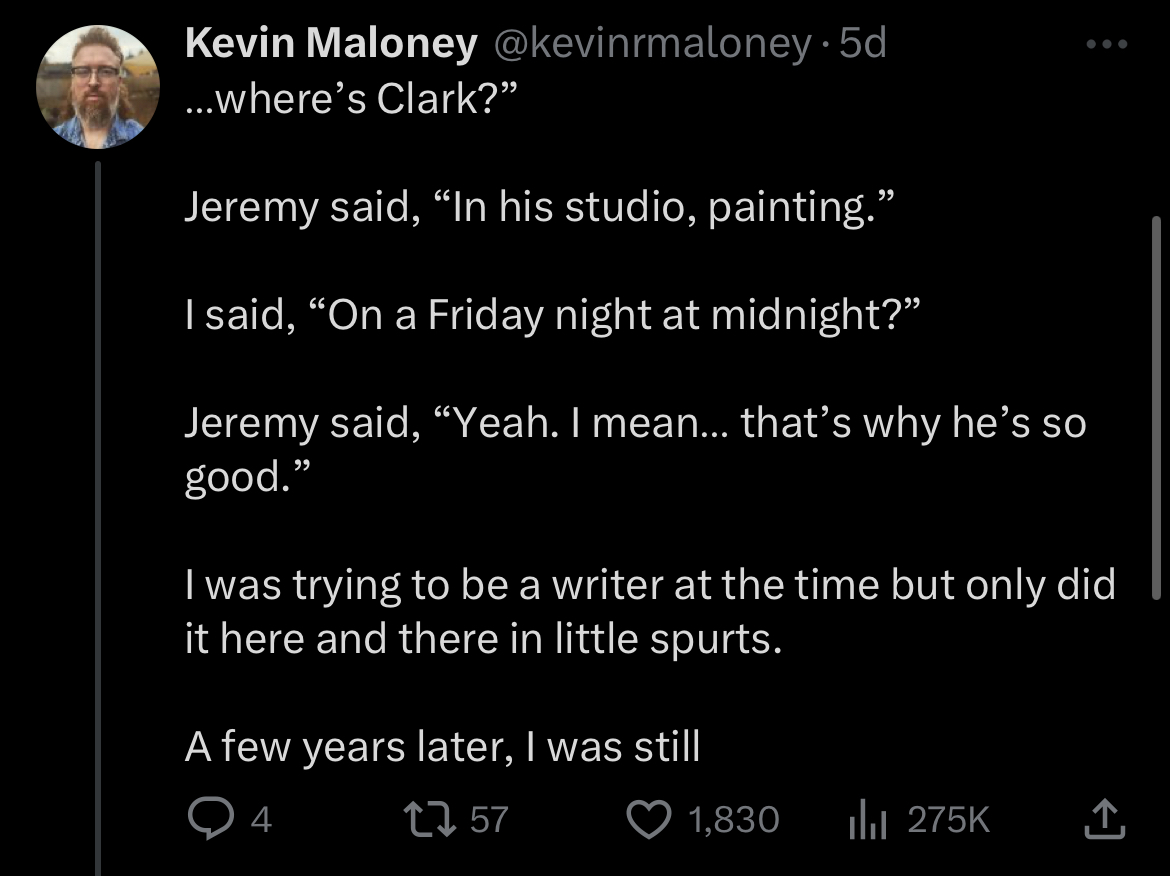
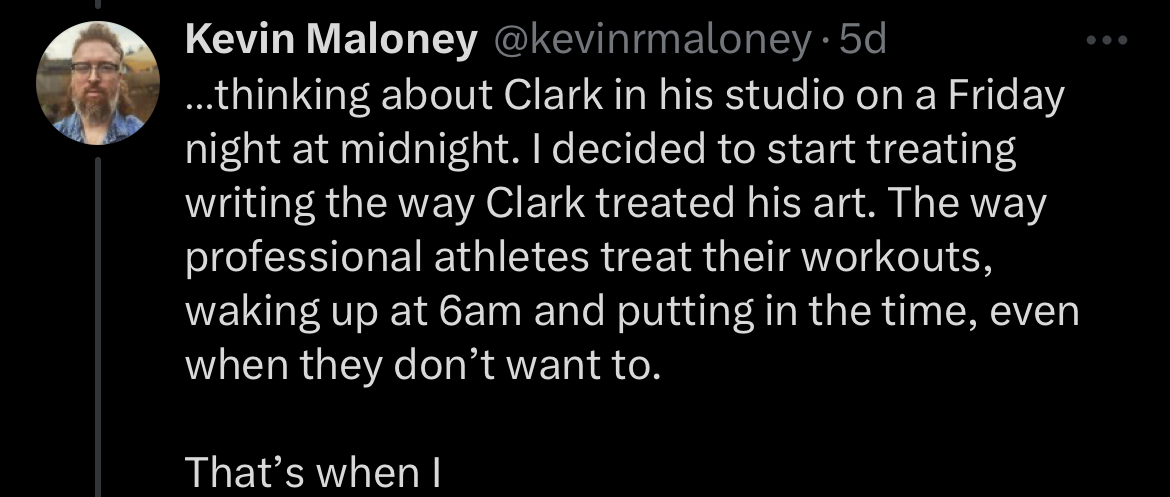
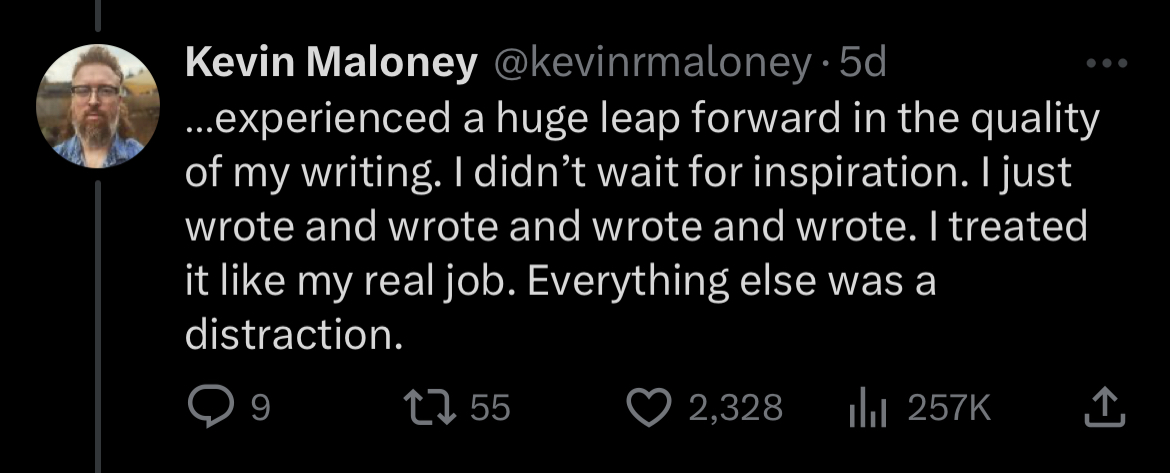
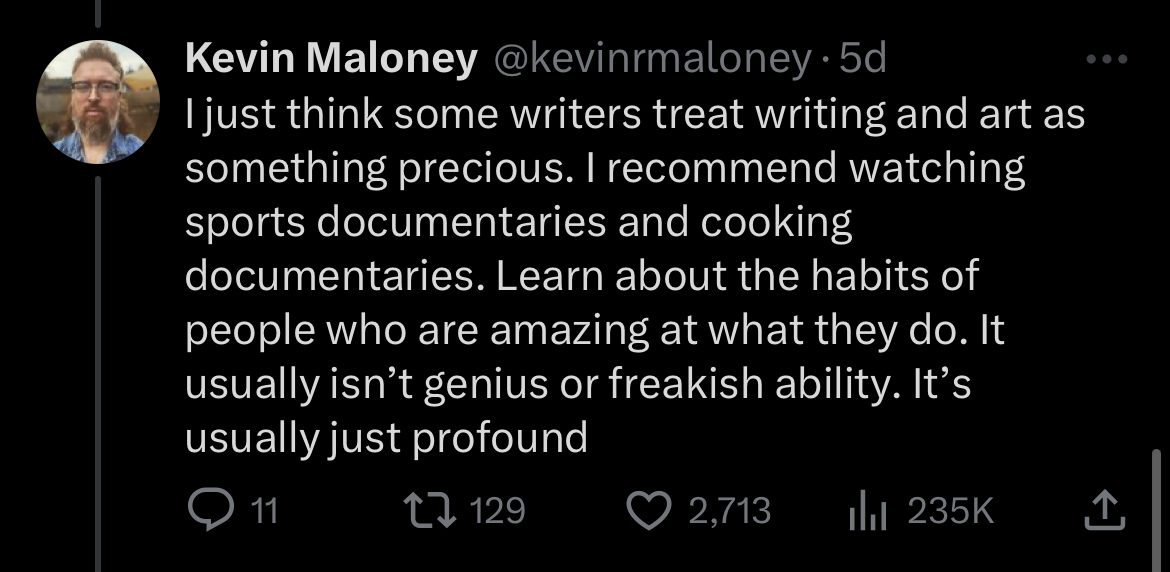
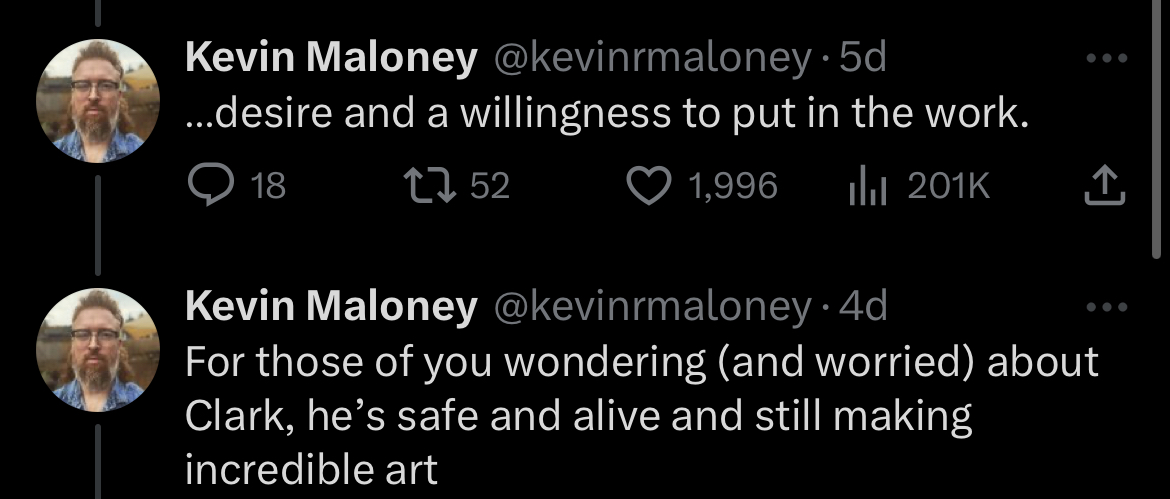
The full Twitter thread
When people say, “Write for your audience,” it sounds nice. And can certainly be true…for some people. In this context, though, I’ve seen it handed out as advice for growing your Substack, where I’d argue there’s a lot more creative writing taking place.
I have found that the more personal your writing is—or the more it draws from human emotions & experiences—the more you should write first for yourself. If you don’t like what you’re writing, what’s even the point? A great many of my essays are for me and don’t go out into the world. Not because they are bad or I’m scared, but because I needed to get it out1.
If I don’t enjoy writing the topics I choose, it shows: the anxiety and stress of writing it wears on me, I procrastinate, I dread it. It probably reads cold and detached to people.
Things shouldn’t stay the same, or you risk stagnation, and evolution is natural. Evolution of business products, of a band’s discography, of tastes and preferences. I try olives once a year to see if my taste buds have changed (and now I’m in Athens—where I can surely be tasting fresh and objectively to those who like them—good olives).
What happens if there’s a mismatch between who your audience is now and who you want them to be? I’m of the mind that if your readers want your writing, they’ll evolve with you. And if they don’t like it, well, they can unsubscribe. And for the record, I don’t have my unsubscribe notifications on because they give me anxiety, so unsubscribe away if my writing no longer works for you.
How and where you spend your precious free time is so important. I found myself oversubscribed to Substacks to the point of being overwhelmed. I had subscribed to popular Substacks, hoping to gain ideas on how to grow mine. A lesson I keep learning here is that you don’t need to do what someone else does because they are not you and their audience is not the same as yours—so why compare?
But, sometimes, you just don’t vibe with what someone writes, and it crosses a line for you. For example, I unsubscribed from a popular one when the writer had an entire issue dedicated to Jordan Peterson, a person I don’t believe should get more attention.
This is my last “marketing” issue—I’ll be sending a reintroduction in two weeks and will remind you then, too. I know people have referred to this as a marketing newsletter, but it’s not really. I mean, it could be if you find parallels in it. You can certainly glean lines of insight for your own marketing needs. I know some of you came here for marketing, so I need to reiterate today’s topic here—I’m writing for myself first and then for my readers second. And I’ve gotten tired of writing about marketing; it no longer feels like “me.” I’m going with my gut and shedding the stuff that I feel is holding me back, and writing about marketing is one of them.

📤 digital marketing
- How This Ex-TikTok Employee Approaches Being A Creator [Buffer]: “Ayomi Samaraweera details her experience in the creator economy and shares her top lessons and advice in this installment of Creators Unlocked.”
- How Small Online Communities Are Delivering Big Brand Results With B2B Influencer Marketing [Hubspot]: “B2B influencers often have both a broad base of social followers and fans in what on the surface may look like general topics such as social media or marketing, however when the digital venue changes to their particular specialized topical areas, it’s there that their true influence will shine the brightest.”
👀 interesting reads
How much social interaction do you actually need? [Vox]: Somewhat ironic for me right now, because I’m about to meet and/or talk with pretty much all strangers for almost two weeks.
A quality conversation is just as important as the quantity of conversations. In his 2020 study, Hall found that meaningful interactions — like laughter-filled hangouts or emotional discussions — adequately keep loneliness at bay.
Friday essay: what is ‘time activism’ – and why do we desperately need it? [The Conversation]
Leisure itself has become merely another opportunity for self-optimisation. Slowness — initially a refutation of the obsessive equating of busyness with moral good — has been turned into its own form of consumption, and a form of consumption quarantined for the well-off.
- Inside Snopes: the rise, fall, and rebirth of an internet icon [Fast Company]: What a roller coaster ride of events.
Snopes’ identity was never quite clear. Was it a fact-checking newsroom or a place for irony-laced commentary? Or something in between? And wasn’t Snopes entitled to growing pains?

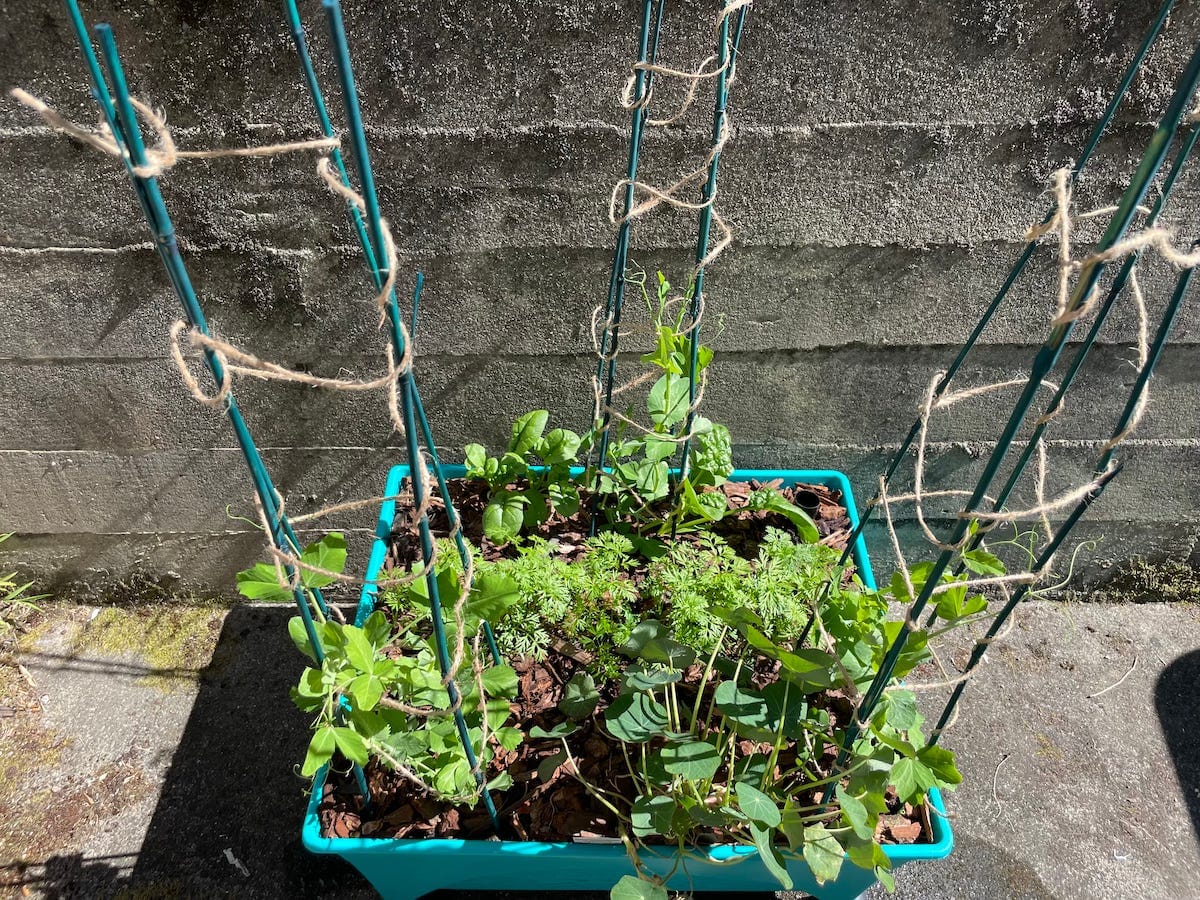
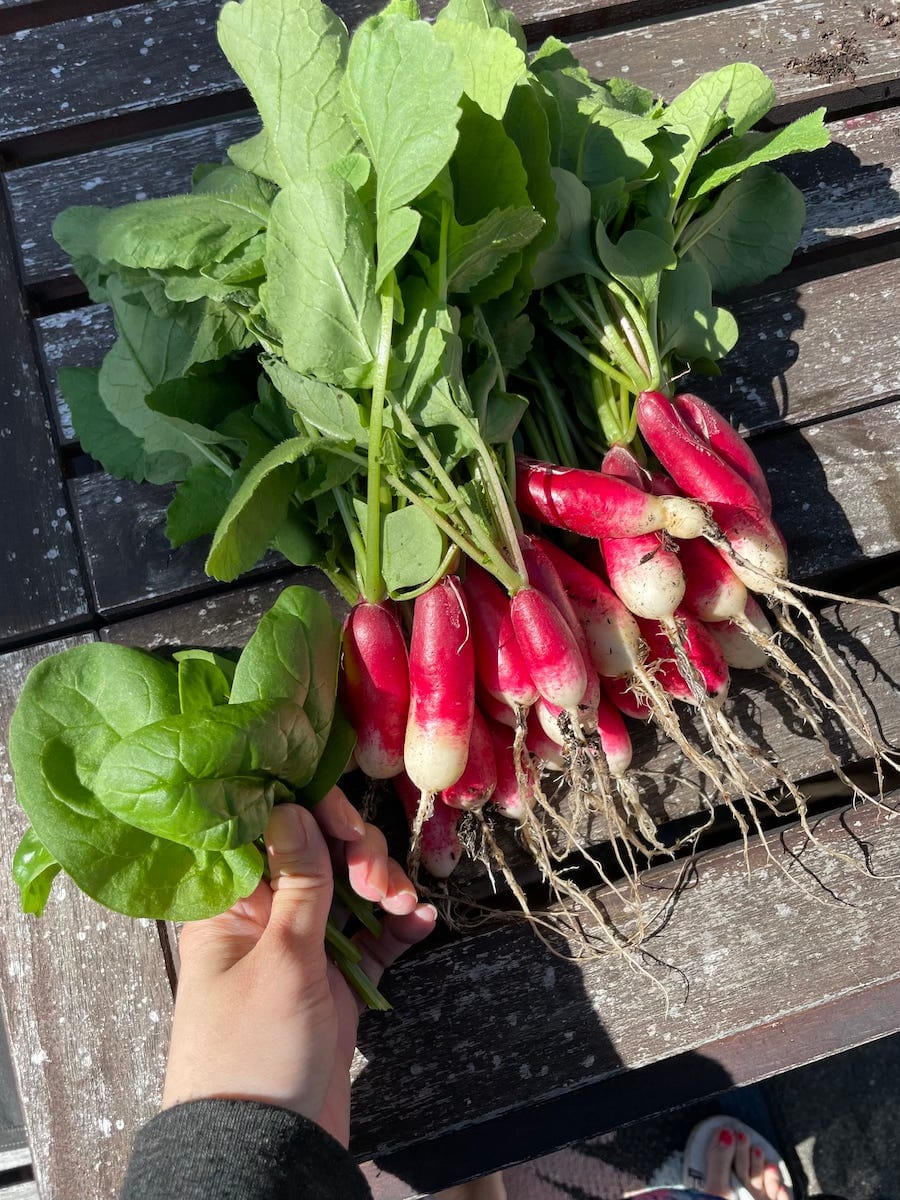
Sugar snap peas have been staked and the self-watering planter has already produced 25 French breakfast radishes!! One month from seed to harvest.
It is also true that I write bad essays or am scared to publish them. I’m human. ↩




